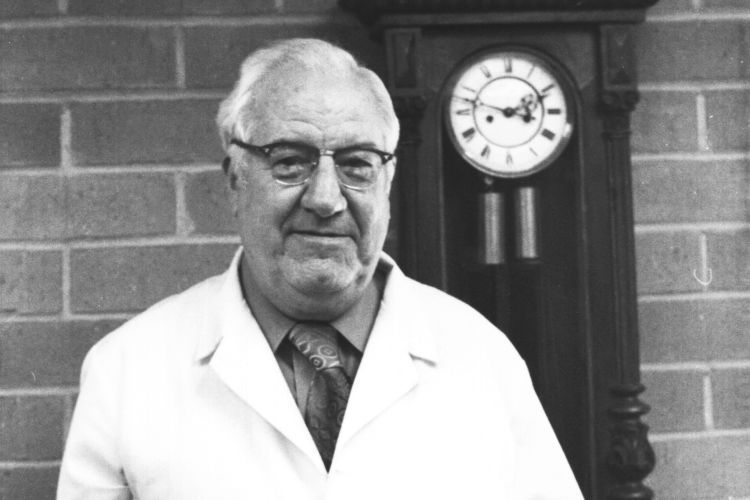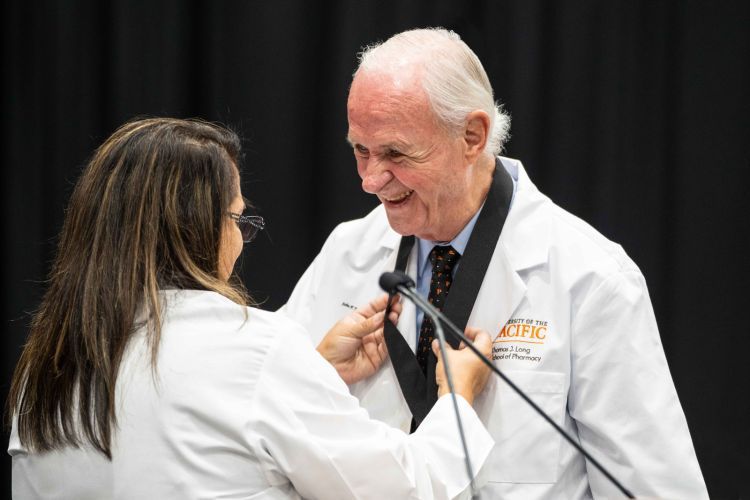Breadcrumb
Pacific research team develops breakthrough single-dose solution to combat fentanyl overdoses
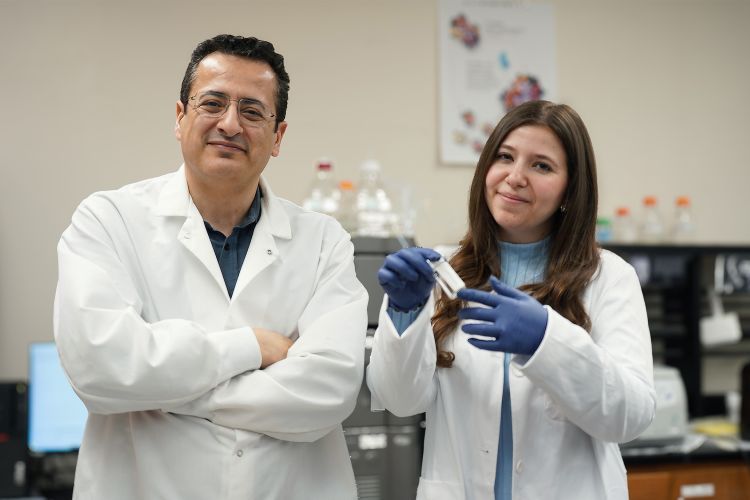
Mamoun Alhamadsheh and Hala Aldawod
A revolutionary drug delivery system developed by Professor Mamoun Alhamadsheh and his team at University of the Pacific could offer a game-changing solution in the fight against opioid overdoses.
The research, published in the highly regarded journal Nature Communications, introduces a single-dose treatment that provides extended protection against fentanyl and other opioids by steadily releasing naloxone for up to one week.
“This technology represents a new frontier in drug delivery systems,” Alhamadsheh said. “Its ability to extend the duration of action of small molecules, such as naloxone, could save lives in acute opioid emergencies and be applied to a wide range of therapeutic areas.”
The delivery system repurposes a derivative of the FDA-approved drug Acoramidis, formerly known as Alhamadsheh-Graef Molecule 10. Discovered by Professor Alhamadsheh, Acoramidis strongly and specifically binds to a protein called transthyretin that is found in our blood.
Functioning like a continuous sprinkling system within the body, the drug forms a depot when injected under the skin, serving as a reservoir that steadily and precisely releases naloxone for up to one week—far surpassing the brief one-hour efficacy of conventional naloxone.
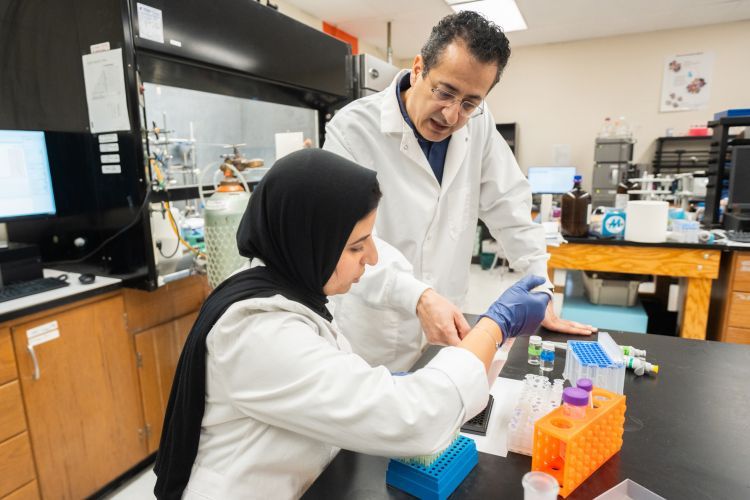
The groundbreaking approach uses a derivative of the FDA-approved drug Acoramidis discovered by Alhamadsheh.
This approach minimizes overdose and withdrawal symptoms as well as other side effects, providing a safer and longer-lasting solution.
The system is simple, cost-effective, chemically stable and requires no refrigeration, making it highly suitable for emergency scenarios.
“I was motivated to develop a longer-acting opioid antidote because fentanyl is causing immense harm to communities across the U.S.,” Alhamadsheh said. “We urgently need solutions that save lives and provide extended protection in critical situations.”
The research was funded in part with a $1.7 million federal grant from the National Institutes of Health.
Hala Aldawod ’24, a postdoctoral fellow in Alhamadsheh’s lab and first author of the study, played a pioneering role in advancing this technology.
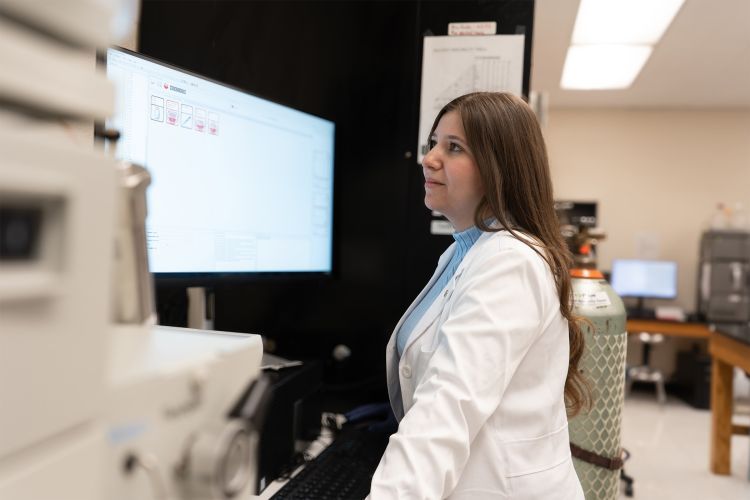
Aldawod, who earned her PhD at University of the Pacific, is continuing her research as a postdoctoral fellow.
“The devastating impact of fentanyl, especially its accidental use and overdose among high school students, inspired me to pursue this research,” said Aldawod, who earned her PhD degree at Pacific. “Knowing that our work could save lives, particularly among vulnerable populations, drives my passion for innovation.”
Other notable members of the research team include co-first authors Arjun Patel ’24, PharmD, PhD and Rasha Emara ’25.
"The exceptional work of Professor Alhamadsheh and his team exemplifies the transformative power of research at Pacific,” said Gretchen Edwalds-Gilbert, provost and executive vice president for academic affairs. “This research in opioid overdose treatment not only addresses a pressing public health crisis but also demonstrates the incredible impact of student involvement in cutting-edge research.”
Because of its week-long delivery, this technology could have the potential to deter abuse of opioid drugs or serve as a prophylactic measure for military personnel or a defense against the use of fentanyl as a chemical weapon.
This groundbreaking study underscores the significance of this innovation and lays the groundwork for future translational studies to bring this life-saving technology to patients worldwide.



